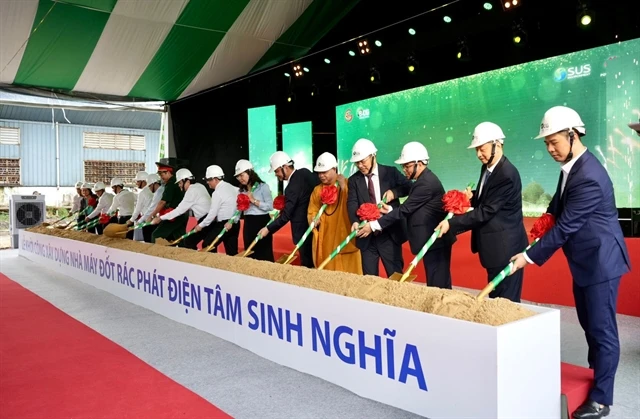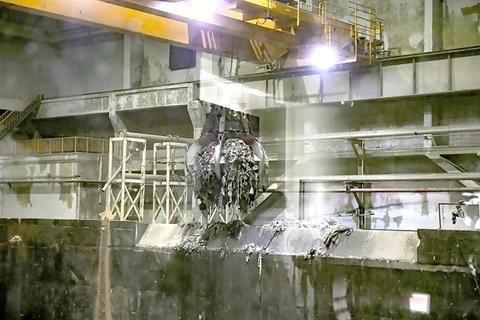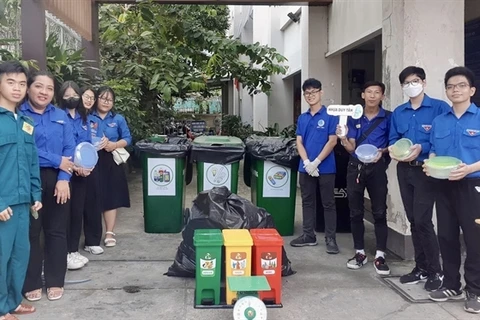
HCM City (VNS/VNA) - Construction of the Tam Sinh Nghia waste-to-energy plant, the first of its kind in Ho Chi Minh City, has begun in the outlying district of Cu Chi.
The private investor, HCM City-based BCG Energy under the Bamboo Capital Group, broke ground for the first phase of the Tam Sinh Nghia waste-to-energy plant on July 20.
With a total investment of 6.4 trillion VND (251.5 million USD), the first phase of the plant has a waste incineration capacity of 2,000-2,600 tonnes and a power generation of 60MW per day.
The project is expected to be completed by the end of next year.
It is owned by the Bamboo Capital Group and BCG Energy after they acquired the Tam Sinh Nghia Investment Development JSC, the previous project owner.
According to the investor, the plant applies advanced technology to generate heat from the trash burning process into electrical energy for production and domestic use.
The remaining ash from waste burning can also be produced as building material, it said.
Additionally, the wastewater generated during the plant's operation will be collected, treated in a closed system, and reused for cooling the internal machinery.
Emissions and ash produced during the burning process will also be treated and will not cause odor or air pollution.
In later phases, the plant will gradually increase its waste incineration capacity to 6,000 and 8,600 tonnes per day, corresponding to power generation levels of 130MW and 200MW.
The city approved the Tam Sinh Nghia project, along with another waste-to-energy project by the Vietstar Company, several years ago.
However, due to procedural delays, only the Tam Sinh Nghia plant got permission for construction.
For the Vietstar project, the company is still completing related documents for fire safety design and technical design approval to obtain a construction permit.
There are two other approved projects in the city dealing with waste using artificial lightning energy and solid waste recycling, with a total capital of more than 13 trillion VND (510.8 million USD), which are being considered for revocation due to slow implementation.
The city now generates about 9,800 tonnes of domestic waste daily, with the number reaching 11,000 tonnes during holidays.
Most of the waste is treated by being buried at landfills, posing a risk of pollution to residential areas.
According to the city’s Department of Natural Resources and Environment, the city aims to treat at least 80% of domestic waste through waste-to-energy technology by 2025, and increase to 100% by 2030./.






















